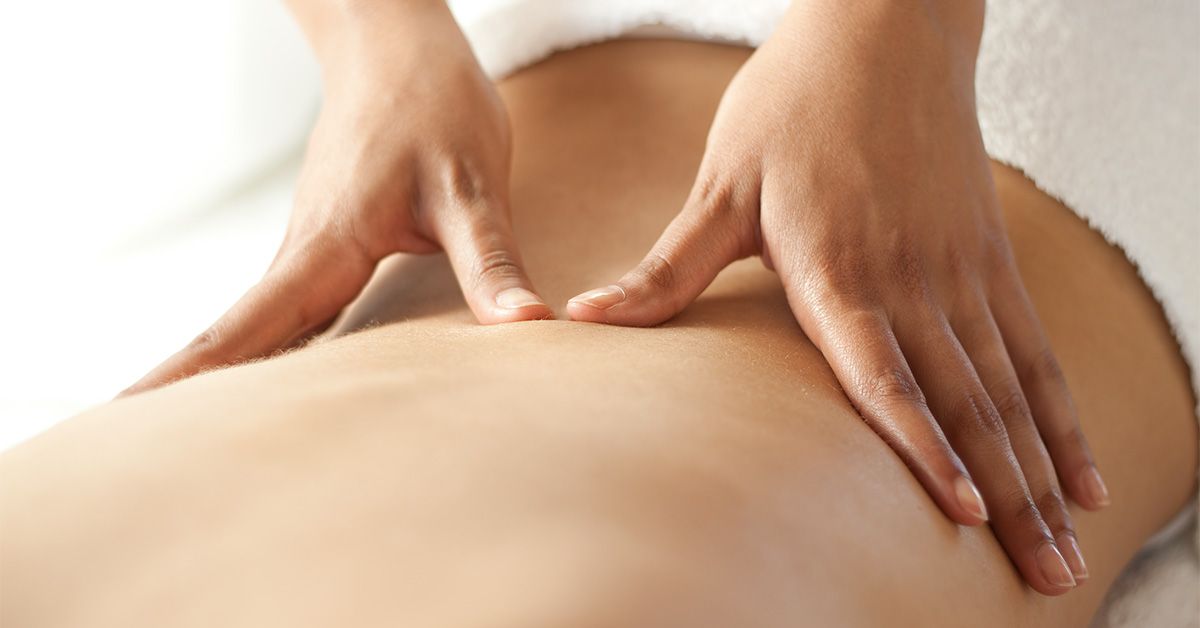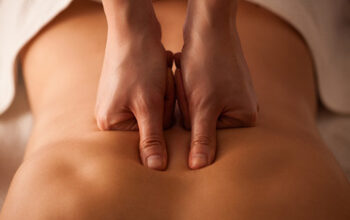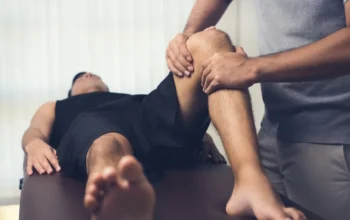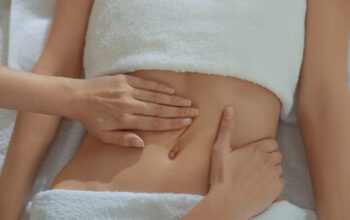Massage Carlsbad is more than just a back rub. It can help alleviate stress and tension, ease muscle soreness, and promote overall wellness.
Massages involve direct pressure on the body from a trained practitioner using their fingers and hands. They may use a massage lotion or oil to reduce friction on the skin.

Stress is a natural part of life, but too much of it can seriously affect your health. High levels of stress can cause several physical and psychological problems, including heart disease, high blood pressure, obesity, depression, and headaches. Fortunately, regular massage can relieve both mental and physical stress and lower your overall anxiety level.
The physiological effects during a massage to reduce stress include increased endorphins, serotonin, and dopamine, decreased cortisol, and increased tissue elasticity. In addition, the massage stimulates the lymphatic system to improve the removal of metabolic wastes in the body. The build-up of metabolic wastes can result in pain, swelling, and muscular fatigue. Reduced levels of stress and increased flexibility can also decrease the need for pain medications and increase healing time after an injury.
In a study published in the Journal of Clinical Psychiatry, researchers discovered that massage reduces the activity of the sympathetic nervous system, which is responsible for the fight-or-flight response during stressful times, and increases parasympathetic nervous system activity. This activity is what helps calm the brain and body during stress. The results of this study found that a 10-minute head and shoulder massage significantly reduced the levels of the stress hormone cortisol. In addition, the participants who had the massage also experienced a reduction in their anxiety levels.
Studies on the effects of massage on stress and anxiety have been conducted using both human subjects and animals. While some of the research has been conflicting, the majority of the study concludes that massage does help to reduce anxiety. In one particular study, researchers tested volunteers’ heart rate variability before and after receiving a Swedish massage. Those who had the Swedish massage showed the greatest improvement in their heart rate variability, which indicates a stress reduction.
While the physical effects of a massage, such as increasing temperature in soft tissues and decreasing heart rate, improve the body’s ability to relax, the emotional benefits of massage are even more powerful. Massage causes the release of feel-good hormones that boost your mood and prevent depression. Moreover, the touch of massage can decrease pain by interfering with pain signals sent to the brain.
When muscles are tight, they produce waste products, which can lead to pain and decrease flexibility. Massage increases blood circulation to muscles, which helps remove waste and increase muscle tissue’s elasticity.
Massage stimulates the release of hormones, which act as natural painkillers. When pain is decreased, flexibility is restored. This is because tight muscles restrict movement and reduce flexibility. Massage can also help to break down and disperse scar tissue in the body, which may have developed after an injury.
Flexibility is important in athletes for several reasons, including injury prevention, such as pulled muscles and twisted joints. It is also a good way to reduce stress and improve the athlete’s overall performance. Massage has been found to increase the elasticity of muscles and increase the range of motion.
The benefits of increasing flexibility through massage are increased range of motion, reduced pain, and maximizing athletic performance. When a muscle is tight, it produces pain and restricts movement. Tight muscles are often caused by overuse or an injury. Massage increases the muscle’s temperature, allowing for a loosening of the muscle fibers.
Regular massages can decrease cortisol levels in the body, which is known to increase tension and tight muscles. In addition, massages can increase the production of feel-good hormones such as serotonin, which decreases stress and improves mood. Getting regular massages is a great way to keep your muscles and joints flexible and in good condition.
Athletes can benefit from massaging before and after physical activity to increase flexibility. A general aerobic warm-up with static stretching followed by a massage can increase flexibility, decrease muscle soreness and fatigue, and increase the efficiency of exercise recovery. In addition, a massage can flush the system of toxins and lactic acid that is produced after exercise, which may cause stiffness and stiff joints. A massage can also help to prevent injury by increasing the elasticity of muscles and joints. A study has shown that massaging an injured muscle before physical activity can prevent injuries such as sprains and tears.
Getting a massage is more than climbing onto a warm table and escaping to another place for a little while. It’s also about releasing hormones that promote health and well-being. One of the most common reasons people seek out massage is to relieve muscle soreness, but did you know that it can help with anxiety and depression as well?
When anxious or stressed, our bodies release hormones that trigger the fight or flight response. These hormones enable quick movement of muscles, improve reaction times, and divert blood flow to essential areas for survival. This can leave us feeling tired and depressed. When we get a massage, it stimulates the parasympathetic nervous system, which helps to balance out these high levels of stress hormones by stimulating the release of neurotransmitters like serotonin and dopamine that make you feel calm.
In addition, massage stimulates the release of endorphins, which are brain chemicals that bind to receptor neurons in the body and reduce pain, tension, anxiety, and depression. Studies have found that endorphins can also reduce stress and depression in patients with fibromyalgia, osteoarthritis, and chronic back pain.
Massage also helps to regulate cortisol, which is a hormone that is released during stress. High levels of cortisol can lead to feelings of anxiety, high blood pressure, and weight gain. Studies have shown that massage decreases cortisol and increases serotonin and dopamine, which are known to boost mood and promote feelings of well-being.
The skin-on-skin contact that occurs during a massage increases the production of oxytocin, also called the “love hormone.” Our brains produce oxytocin for many reasons, including pregnancy and breastfeeding, but it can be made through other activities like exercise, social bonding, and even smiling.
Massage is a great way to reduce muscle soreness after strenuous or intense athletic events. Releasing endorphins, dopamine, and serotonin reduces inflammation and increases blood flow. This will decrease the recovery time from sore muscles and allow you to return to your routine sooner.
If you have been struggling to get a good night’s sleep, massage is an excellent way to improve your situation. Not only does it alleviate sore muscles and give you dedicated self-care time, but it also promotes better sleep by decreasing cortisol levels. Cortisol is the body’s primary stress hormone that causes problems such as increased blood sugar, high levels of abdominal fat, fatigue, and depression.
A good night’s rest is critical to your overall health. Sleep deprivation leads to several physical and psychological issues, including cognitive decline and an increased risk of workplace or traffic accidents. It also decreases growth hormone production, which makes it harder for your body to build muscle and lose weight. Getting the right amount of sleep will help you feel refreshed and revitalized, making it easier to fall asleep and stay asleep throughout the night.
Getting a massage helps with sleep by relaxing the muscles, promoting blood flow, and decreasing tension in the body. It also increases serotonin and dopamine, chemicals in the brain that promote happiness and relaxation. Additionally, it can reduce the heart rate and blood pressure, both known to cause a calming effect on the body and mind.
In addition, a massage can be helpful for those who suffer from chronic pain or a medical condition that interferes with sleep. For example, people with fibromyalgia and arthritis often find that massage can ease their pain, helping them sleep better. In addition, a massage can be beneficial for those who struggle with insomnia. Insomnia is a common sleep disorder that stress, poor lifestyle habits, or certain medical conditions can cause. Research shows that massage can increase the occurrence of deep stage 3 sleep, considered optimal for healing and cell repair.
If you are a person who struggles to get a good night’s rest, consider adding regular massage to your routine. Our experts at the spa have come up with some simple tips that you or your partner can do before bed to help you sleep better, and they will give you a good foundation for developing a healthy bedtime routine.



